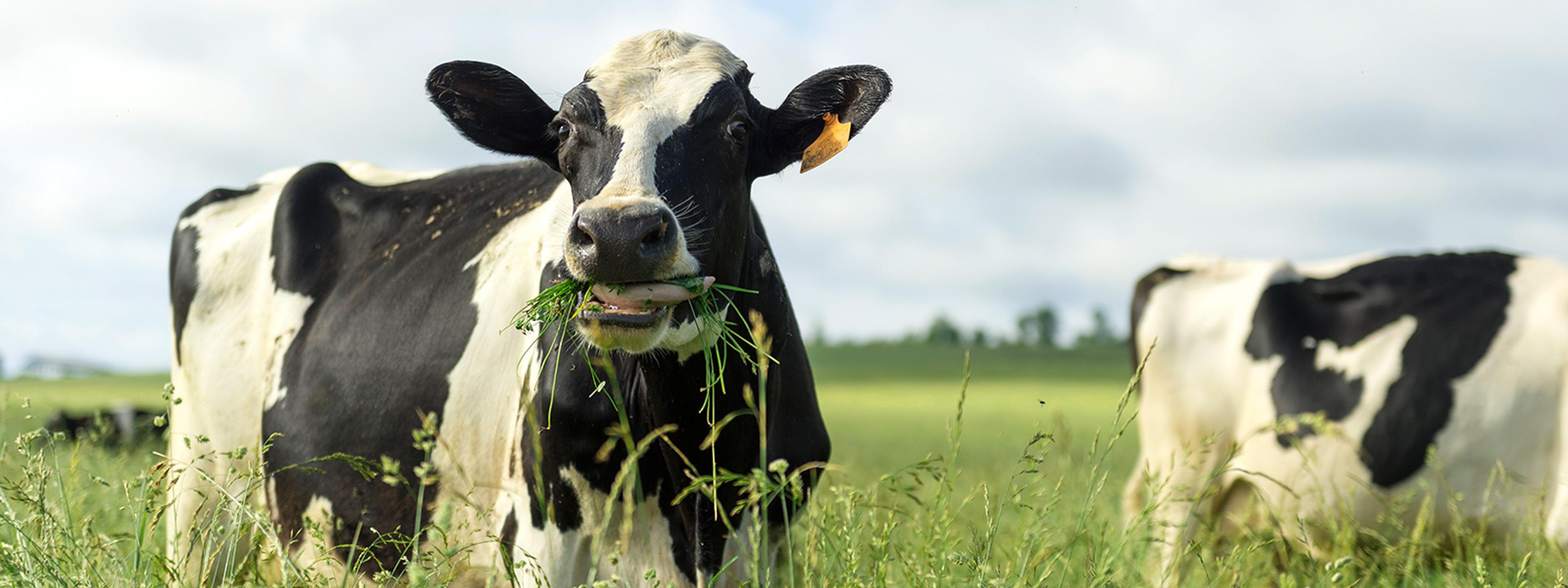
Farming
What Grass-Fed Means
What is grass-fed milk?
We have answers! In this article, we'll clear up:
- What the term “grass-fed” means when you see it on a milk package.
- The standards and seal that regulate it.
- And what to look for at the store so you can make informed choices about your food.
A lot of dairy producers use the term "grass-fed" (or “grassfed”) in a way that can be misleading. But at Organic Valley, we hold ourselves to strict standards to ensure that all of our milk comes from cows whose diet really and truly is centered on grass. For us, this means prioritizing pasture and guaranteeing that cows spend as much of the grazing season as possible out in the fields eating growing grass.
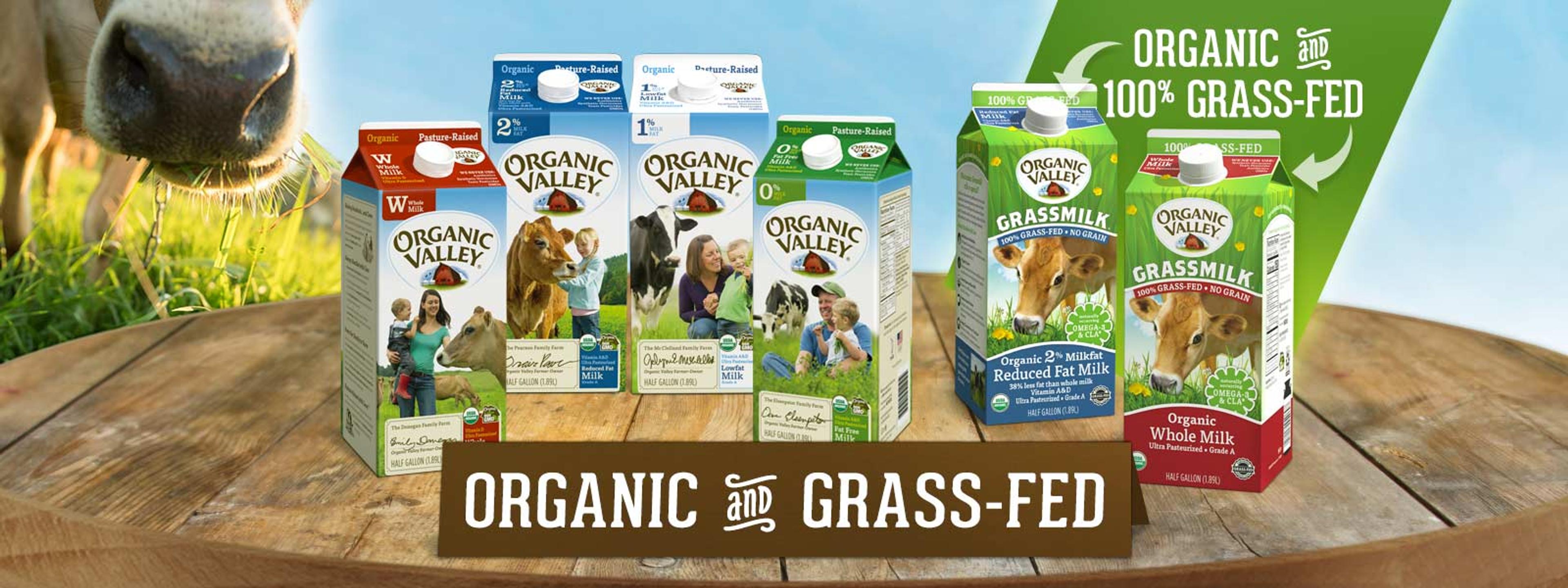
What do 'grass-fed,' '100% grass-fed' and 'Certified Grass-Fed Organic' mean?
When you see “grass-fed” on most milk, cheese and butter packages in the store, it quite simply means that some of the animals’ diet came from fresh pasture or dried grasses like hay. It could be a little, or it could be a lot. In addition, all certified organic cows are grass-fed—in a general sense—because the National Organic Program requires organic cows to receive 30% of their diet from pasture during the grazing season.
However, when you see "100% grass-fed" on Organic Valley Grassmilk® milk and cheese, it means all of the cow’s nutrition comes from fresh grasses, dried and stored forages, and a small amount of supplements like molasses—no grains. This is true year-round, summer or winter.
A new Certified Grass-Fed Organic Livestock Program introduced in early 2019 will go a long way toward clearing up the inconsistencies around what “grass-fed” means for organic foods. The program has begun with certifying grass-fed organic dairy and started showing up on Organic Valley Grassmilk® products in late 2019. Keep an eye out for it on your other favorite grass-fed dairy products, or contact the makers to request that they participate in this certification program.
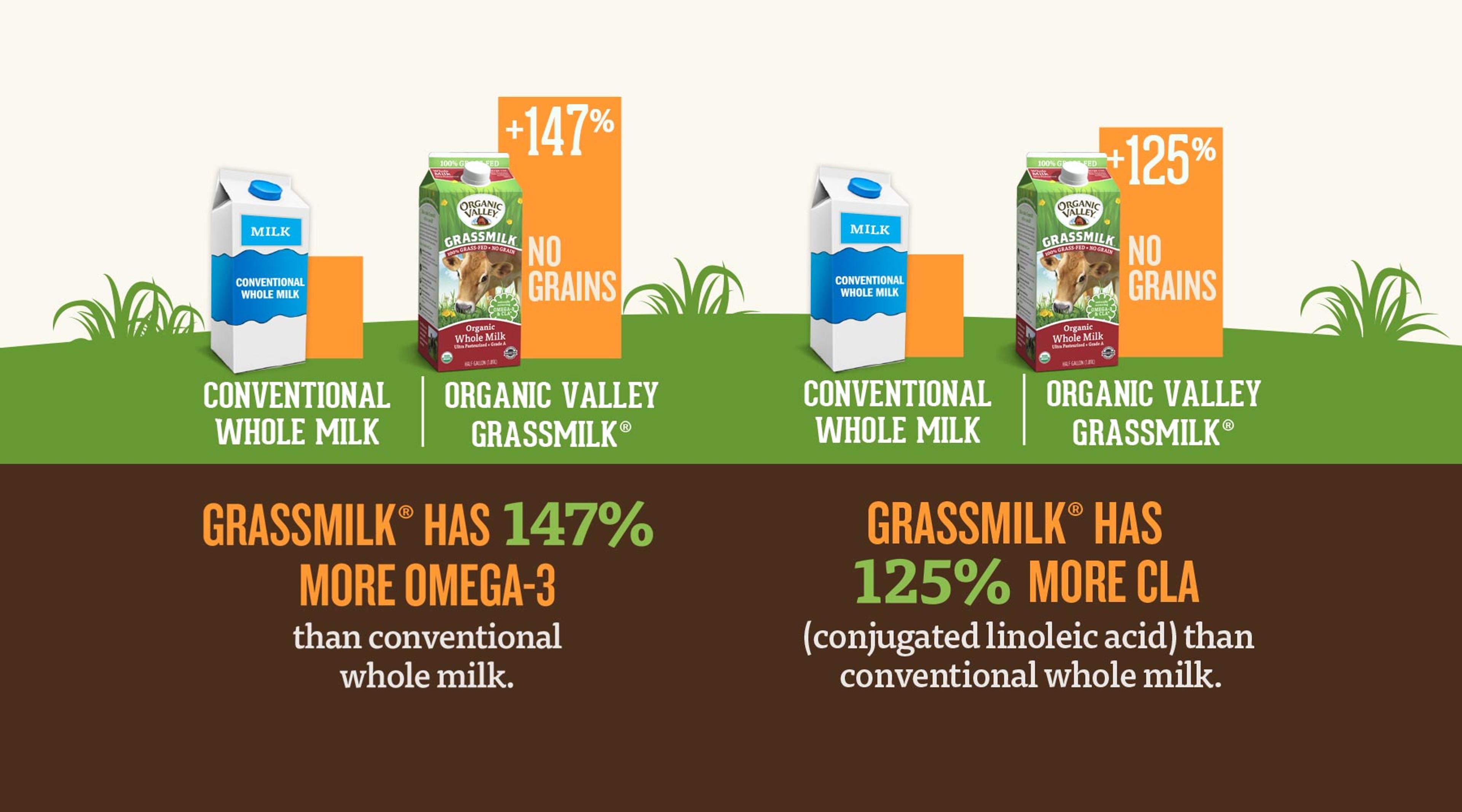
Is organic grass-fed milk actually better for me?
Emerging science suggests that the nutritional profile of organic, grass-fed milk is notably different from grain-fed cows!
Peer-reviewed research published in 2013 and 2018 both found that organic, grass-fed dairy has a distinct nutritional profile that is quite different from the profile of milk from grain-fed cows. The studies found that organic, grass-fed dairy has significantly higher levels of omega-3 and CLA fatty acids than milk from cows that eat mostly grain—more than double!
In addition, a 2015 study by Newcastle University reviewed 196 papers about milk nutrition and also concluded that organic, grass-fed milk contains higher levels of beneficial fatty acids.
In short: More grass in the diet equals more beneficial fatty acids in the milk.
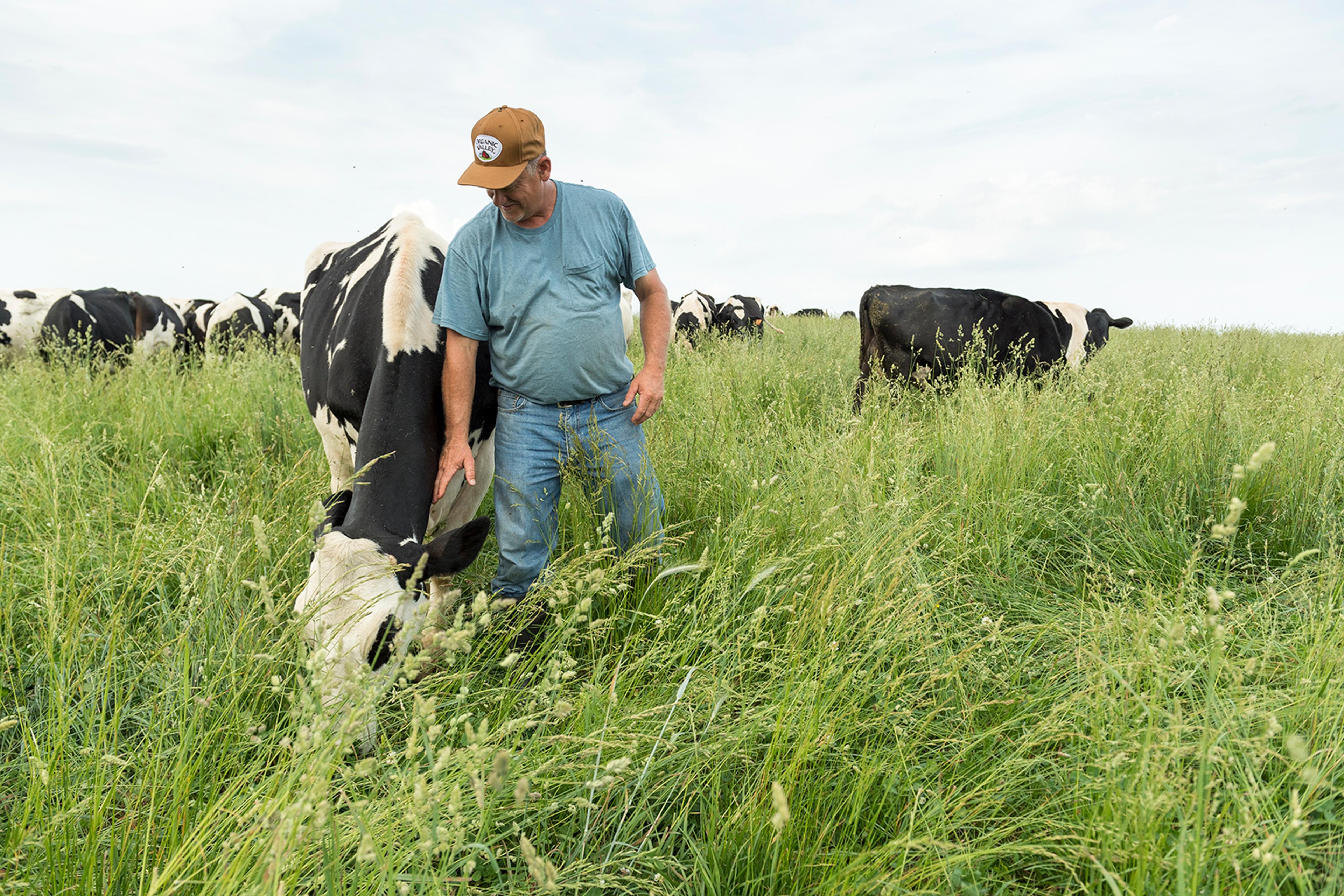
A cow contentedly grazes alongside Butch Lay on his Organic Valley family farm.
Is grass-fed the same as pasture-raised?
Not quite. At Organic Valley, we use these terms to describe different aspects of how we farm.
“Pasture-raised” describes our holistic philosophy of dairy farming—raising animals outdoors on pasture, where they get fresh air and sunshine and can exhibit normal cow behaviors, which includes grazing fresh pasture grasses. It also encompasses our high standards for humane animal care and providing our animals with good living conditions.
"Pasture-raised" is a broad term and applies to all of our farms. (Learn more about our pasture-raised philosophy of farming.)
In comparison, “grass-fed” simply describes what the cows eat. All of our cows are “grass-fed” in the general sense since certified organic cows are required to get a portion of their diet from pasture—but only some are Certified Grass-Fed Organic.
Are all Organic Valley cows grass-fed?
All Organic Valley cows are grass-fed, but not all are Certified Grass-Fed Organic Dairy or 100% grass-fed.
All of our farms are grass-fed because they meet or exceed USDA Organic standards for how much time cows are required to spend on pasture and for how much of the cows’ diet must come from fresh grass. We also supplement fresh pasture with dried grasses, like hay, and other nutritious forages.
For our pasture-raised cows, the majority of their diet still comes from grass and forage, and they receive a ration of organic grain to ensure balanced nutrition. On average across all our farms, the feed ratio is around 85% grass/forage to 15% grain. Even though our pasture-raised cows are legitimately fed mostly grass, we have made the decision not to put the "grass-fed" term on those cartons to avoid confusion for consumers looking for 100% grass-fed products. Regardless, you can have peace of mind knowing that all Organic Valley dairy products come from cows that eat grass as the majority of their diet.
Our Grassmilk® dairy products are 100% grass-fed and have opted-in to the Certified Grass-Fed Organic Dairy program, which means exactly what it sounds like: third-party certifiers have verified that these animals’ entire diet is composed of fresh and dried organic grasses, forages, herbs and broadleaf pasture plants. (More on that below.)
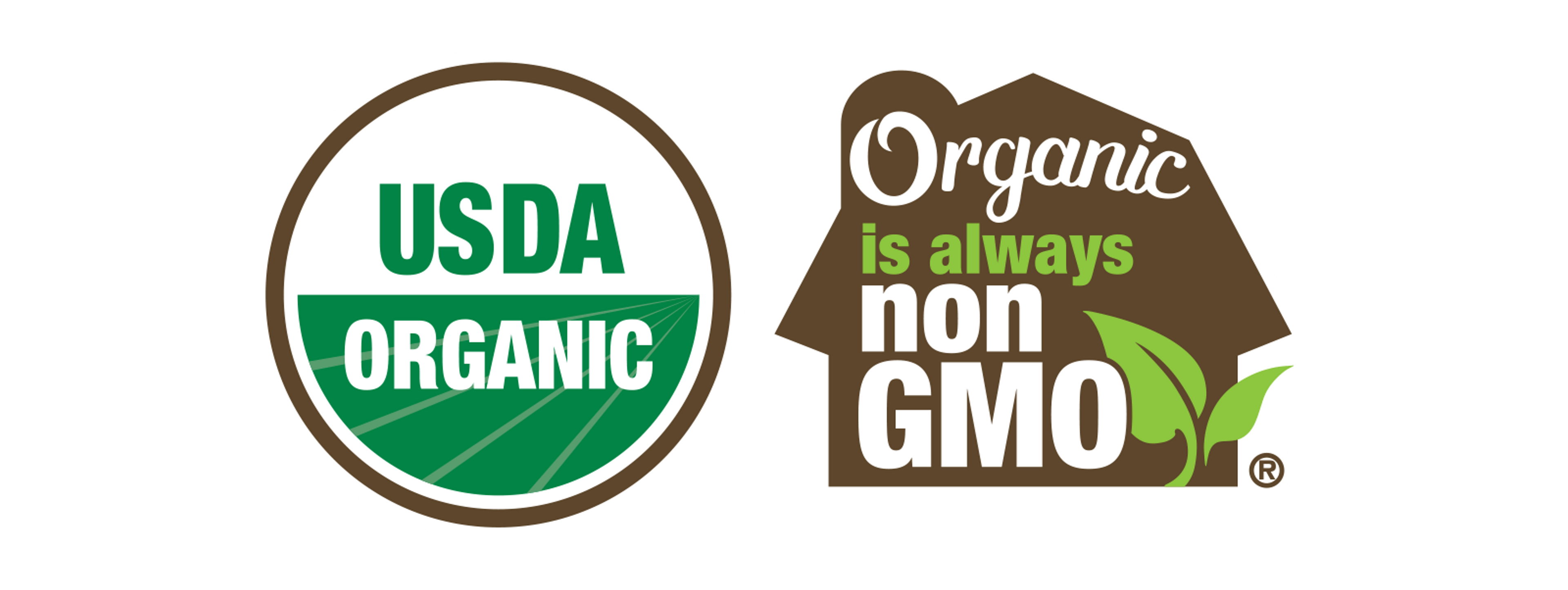
Is all grass-fed dairy organic?
No. All dairy farms feed their cows some dried grasses (hay), so you may see the term “grass-fed” on some non-organic milk cartons. But most non-organic milk you see in the supermarket is produced by confinement dairy operations where the majority of the cows’ diet is made up of grains (usually GMO grains) and where the cows are rarely on pasture, or not at all.
But when you choose Organic Valley at the shelf, you can trust that you are buying organic and grass-fed. Everything our cows eat is USDA Certified Organic, our cows meet or exceed all USDA Organic standards for time spent on pasture and amount of their diet derived from forage, and our milk never comes from cows treated with antibiotics* or growth hormones. (Here's the scoop on what certified organic really means. Hint: It's more than you might think!)
Plus, our Grassmilk products are also Certified Grass-Fed Organic Dairy, which means a certifier has confirmed that we're walking the talk and truly organic grass-fed.

Is “grass-fed” regulated like USDA Organic is?
There is now a Certified Grass-Fed Organic Livestock Program, which launched in early 2019 with the grass-fed organic dairy certification and seal pictured above. We’re proud to say that Organic Valley Grassmilk® farms were some of the first to receive the new certification, and the seal was added to our Grassmilk® packages in late 2019.
Although it is voluntary, this third-party-verified standard provides much-needed guidelines and definitions to ensure consistency among all organic, grass-fed producers and products that choose to get certified. It’ll place the label on certified grass-fed organic products so that you know exactly what you’re buying.
Keep in mind, this new seal will only clarify “grass-fed” when used on organic foods, but it’s a big step in the right direction! If you vote with your dollars for products that use this seal, it'll encourage more and more farms and brands to participate and use it, over time making it even easier to know exactly what you're getting with grass-fed foods. Read more about this grass-fed organic certification.
In the end, remember two things when you're out shopping:
- "Grass-fed" does not always mean organic. Be sure to look for the USDA Organic seal too.
- Without certification of some kind, “grass-fed” could still mean anything from a little grass to a lot, depending on the farm and product. So when in doubt, look up the brand, look for the Certified Grass-Fed Organic Seal (and know that you can trust Organic Valley Grassmilk® products!).
Footnote:
*Organic farmers will use antibiotics in rare instances when they are needed to save a cow’s life or to prevent suffering. In these instances, the cow loses its organic certification. This means that her milk cannot be sold as organic and she is no longer considered an organic cow.
Related Articles
- Tags:
- animal care,
- grass-fed,
- food labeling

















